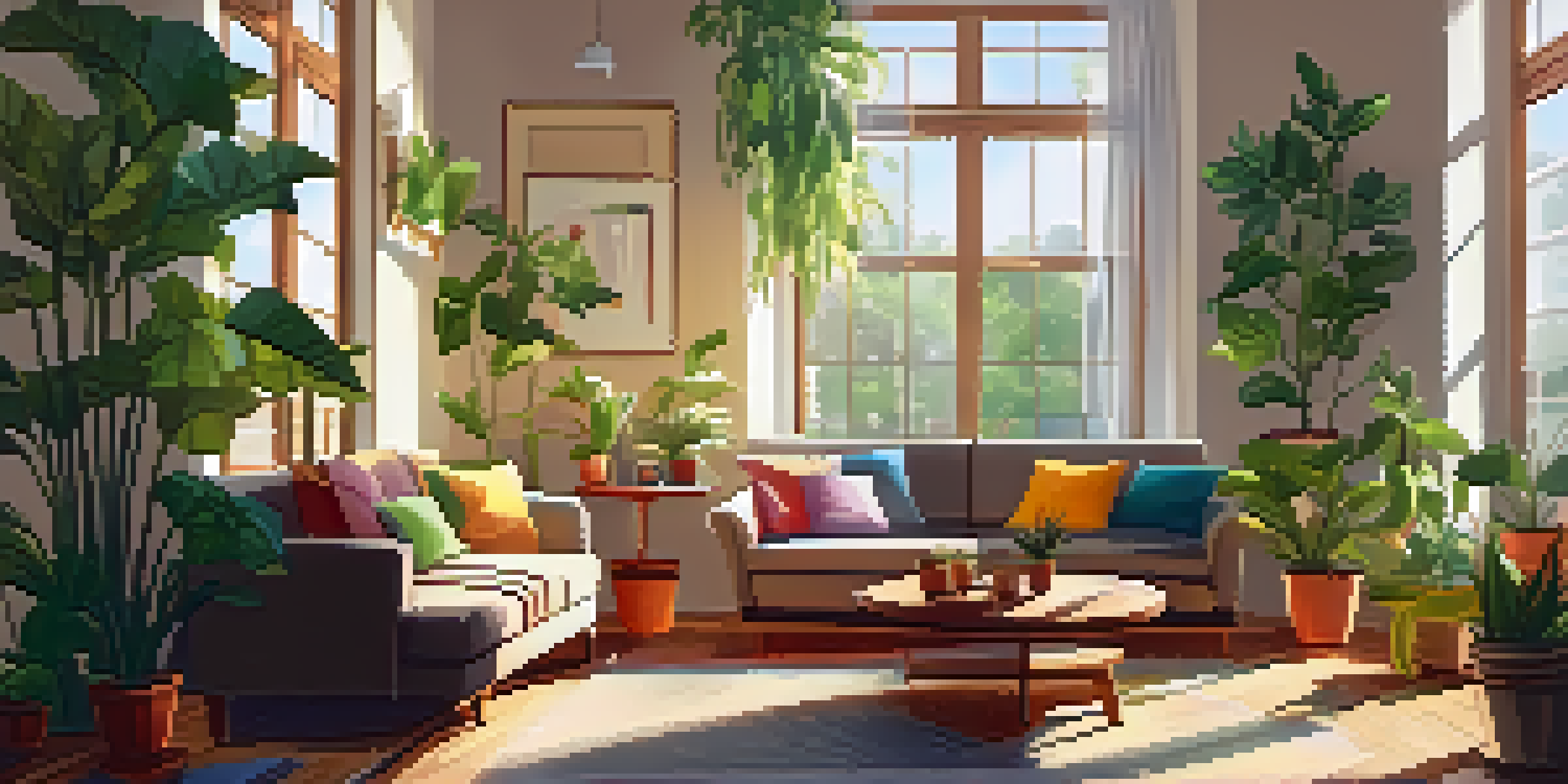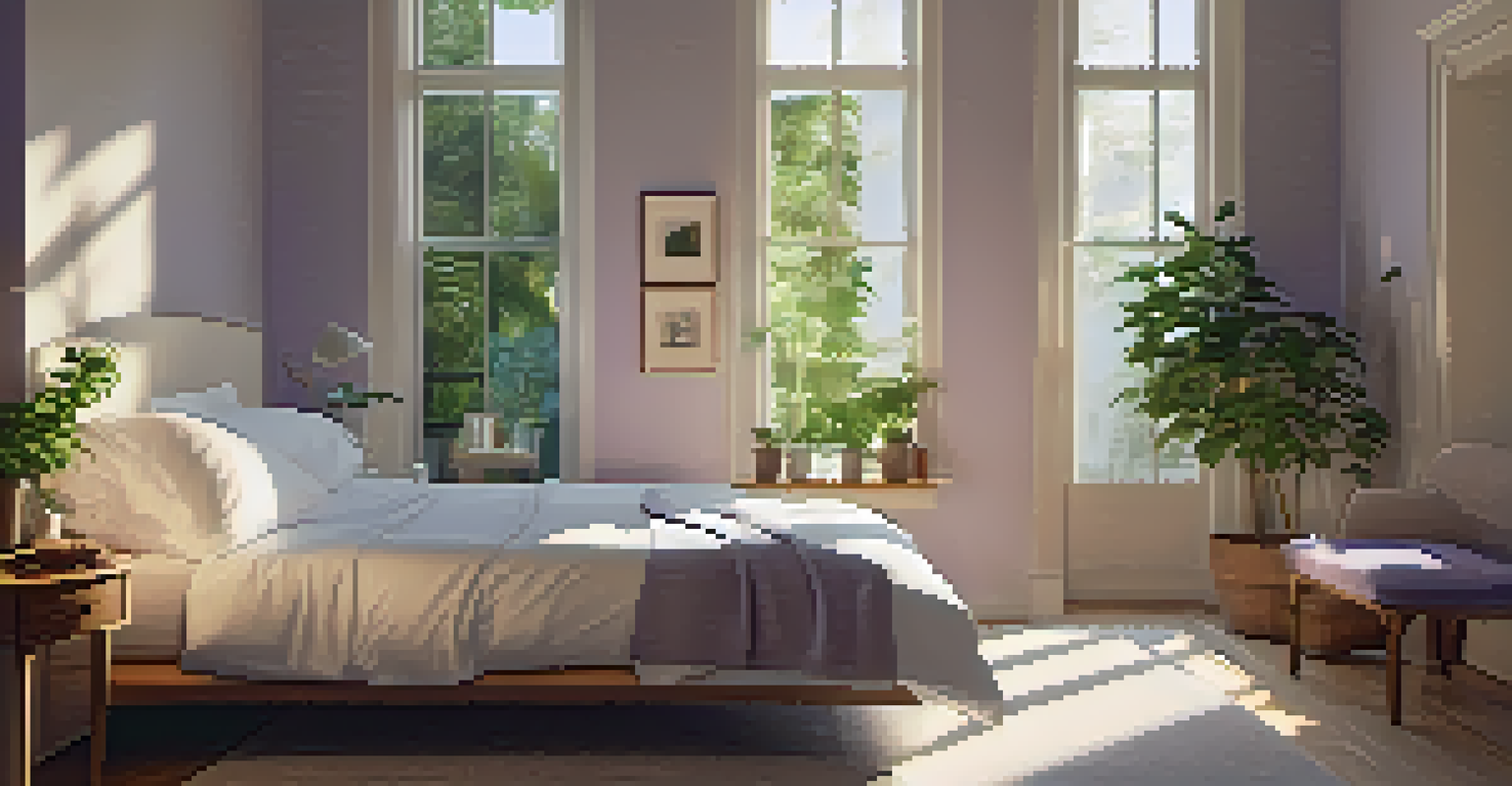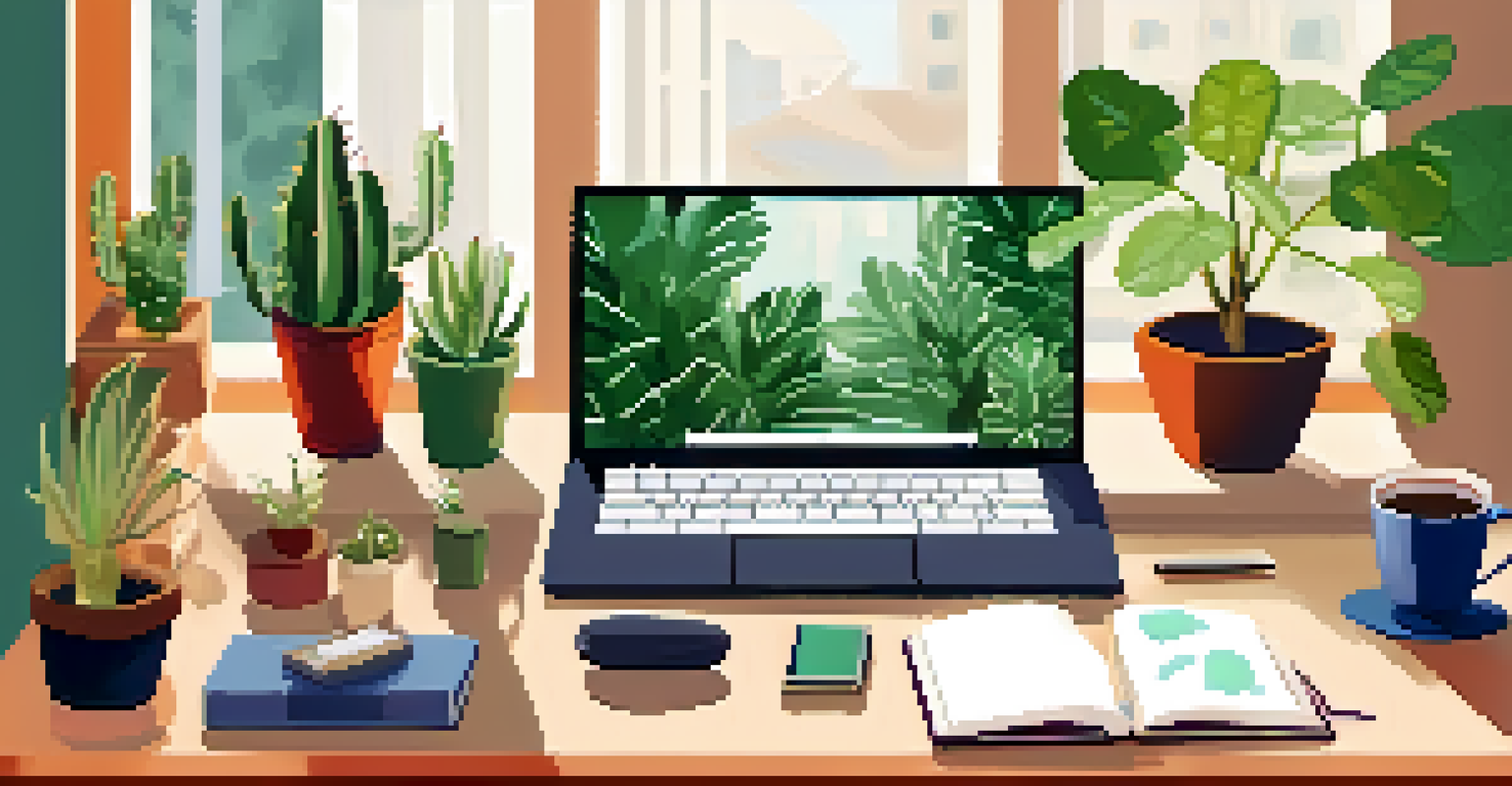The Benefits of Indoor Plants for Mental and Physical Health

Indoor Plants Improve Air Quality and Reduce Stress
One of the most significant benefits of indoor plants is their ability to purify the air. They absorb toxins and release oxygen, creating a healthier environment. This clean air can lead to reduced stress levels, making your space feel more calming.
The presence of a few plants can help you feel happier and more focused.
Imagine stepping into a room filled with greenery; it instantly feels more refreshing. Studies have shown that being around plants can decrease cortisol levels, the hormone associated with stress. So, having indoor plants isn't just about aesthetics—they actively contribute to a serene atmosphere.
Moreover, the act of caring for plants can also be therapeutic. Watering, pruning, and watching them grow can provide a sense of accomplishment and purpose, further alleviating stress and enhancing your overall wellbeing.
Boosting Mood and Enhancing Productivity
Indoor plants don't just clean the air; they can also lift your spirits. Research indicates that greenery can significantly improve mood and even combat feelings of anxiety and depression. Just a few plants in your workspace can create a more positive environment.

For instance, a study conducted by the University of Queensland found that office workers reported higher levels of satisfaction and productivity when surrounded by plants. It’s as if these little green companions give us an extra boost to tackle our tasks.
Indoor Plants Purify Air and Reduce Stress
Indoor plants absorb toxins and release oxygen, creating a healthier environment that helps reduce stress levels.
Additionally, plants can enhance creativity. The soothing presence of greenery can help clear your mind and promote innovative thinking. So, if you’re feeling stuck, consider adding a few plants to your workspace for a refreshing perspective.
Promoting Better Sleep and Relaxation
Did you know that certain indoor plants can help you sleep better? Plants like lavender and jasmine release calming scents that can promote relaxation and improve your sleep quality. A peaceful environment is essential for a good night's rest.
Plants are a gift to us from nature, a reminder of our connection to the earth.
Incorporating plants into your bedroom can create a sanctuary-like atmosphere. Not only do they enhance the decor, but they also contribute to a tranquil ambiance that encourages restful sleep. Imagine drifting off to sleep surrounded by soothing greenery.
Furthermore, the act of caring for plants can also become part of a relaxing evening routine. Tending to your plants can be a mindful practice that helps you unwind after a long day, allowing you to transition smoothly into your nighttime rituals.
Increasing Humidity and Supporting Respiratory Health
Indoor plants can also help increase humidity levels, which is beneficial for respiratory health. Higher humidity can reduce dryness in the air, alleviating issues like dry throat and skin, especially during the winter months.
Plants release moisture vapor during photosynthesis, effectively adding humidity to the air. For example, plants like peace lilies and spider plants are known for their ability to improve humidity levels significantly, creating a more comfortable living space.
Plants Boost Mood and Creativity
Surrounding yourself with greenery can enhance mood and productivity, making workspaces feel more positive and inspiring.
This increase in humidity can be particularly helpful for those with allergies or respiratory conditions. By incorporating indoor plants, you’re not only decorating your home but also fostering a healthier atmosphere for breathing and overall wellbeing.
Creating a Connection with Nature Indoors
In today's fast-paced urban lifestyle, it can be challenging to find time to connect with nature. Indoor plants provide a simple way to bring a piece of the outdoors inside, creating a natural oasis in your home.
This connection to nature can have profound effects on our mental health. Studies have shown that spending time in nature can reduce feelings of anxiety and depression. By surrounding ourselves with plants, we can mimic this experience and reap similar benefits.
Additionally, nurturing plants can foster a sense of responsibility and mindfulness. Each time you water or care for them, you’re reminded of the beauty and resilience of nature, which can be incredibly grounding and uplifting.
Enhancing Aesthetic Appeal and Personal Space
Beyond health benefits, indoor plants significantly enhance the aesthetic appeal of any space. They add color, texture, and life to otherwise dull areas, making your home or office feel more welcoming.
Picture a drab corner transformed by a tall, leafy plant or a vibrant flower pot—it's like instant decor that breathes life into your surroundings. This visual enhancement can also contribute to your overall mood and sense of comfort in your space.
Enhance Sleep with Calming Plants
Certain plants emit soothing scents that promote relaxation, creating a tranquil atmosphere ideal for restful sleep.
Furthermore, choosing plants that reflect your personal style can help create a unique atmosphere. Whether you prefer minimalistic succulents or lush tropical plants, the right greenery can express your individuality and make your space truly yours.
Incorporating Indoor Plants into Your Lifestyle
Now that we’ve explored the benefits, you might be wondering how to incorporate indoor plants into your life. Start small; consider adding a few low-maintenance plants like pothos or snake plants to your home or workspace.
As you become more comfortable with plant care, you can expand your collection. Research different types of plants that suit your environment and lifestyle. Some plants thrive in low light, while others need more sunlight, so choose wisely!

Remember, the goal is to create an enjoyable and beneficial experience. Each plant you add can contribute to your mental and physical health, making your indoor space a sanctuary of wellbeing.